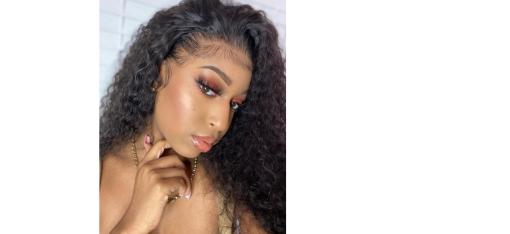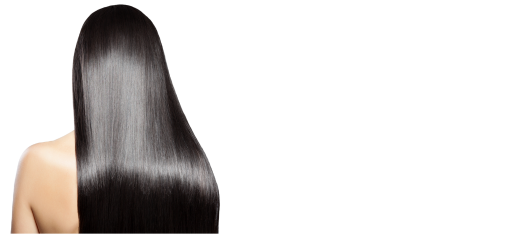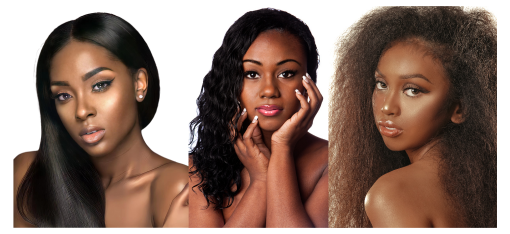Hair Loss Due to Nutritional Deficiencies
Hair loss can be caused by a variety of factors, including nutritional deficiencies. Proper nutrition is essential for maintaining healthy hair, and deficiencies in certain vitamins and minerals can lead to hair loss. In this blog post, we will discuss the causes of hair loss due to nutritional deficiencies, the symptoms to look out for, and what you can do to prevent and treat this type of hair loss.
What is Hair Loss Due to Nutritional Deficiencies?
Hair loss due to nutritional deficiencies is when hair falls out or becomes thin due to a lack of essential nutrients. The body needs certain vitamins and minerals to maintain healthy hair, and if these nutrients are not obtained through the diet or supplements, it can lead to hair loss. Some of the common nutritional deficiencies that can lead to hair loss include iron, biotin, zinc, and vitamin D.
How Does Nutritional Deficiencies Cause Hair Loss?
Hair loss due to nutritional deficiencies occurs when the body is not getting enough of the essential vitamins and minerals needed to maintain healthy hair. For example, a lack of iron can lead to anemia, which can cause hair loss. Biotin deficiency can lead to brittle hair and hair loss, while zinc deficiency can cause hair to become thin and fall out. Vitamin D deficiency can also lead to hair loss as it is essential for healthy hair growth.
What are the Symptoms of Hair Loss Due to Nutritional Deficiencies?
The symptoms of hair loss due to nutritional deficiencies can vary depending on the nutrient deficiency. Some common symptoms to look out for include:
- Hair becoming thin and brittle
- Hair falling out in clumps
- Slow hair growth or no growth
- Hair that is dry and dull
- A receding hairline or bald patches
How is Hair Loss Due to Nutritional Deficiencies Diagnosed?
Hair loss due to nutritional deficiencies can be diagnosed by a blood test to check for nutrient deficiencies. Your doctor may also examine your hair and scalp to determine the cause of hair loss.
What are the Treatment Options for Hair Loss Due to Nutritional Deficiencies?
The treatment for hair loss due to nutritional deficiencies is to increase your intake of the nutrient that you are deficient in. This can be done through diet changes, supplements, or both. For example, if you are deficient in iron, your doctor may recommend an iron supplement or suggest incorporating more iron-rich foods into your diet, such as spinach or red meat.
How Long Does it Take for Hair to Regrow After Nutritional Deficiency Treatment?
The regrowth of hair after nutritional deficiency treatment can vary depending on the severity of the deficiency and the individual. It may take several months for the hair to regrow, and it may not grow back as thick or strong as it was before the deficiency.
Are There Any Natural Remedies for Hair Loss Due to Nutritional Deficiencies?
There are several natural remedies that may help with hair loss due to nutritional deficiencies. These include:
- Eating a balanced diet rich in nutrients, including iron, biotin, zinc, and vitamin D.
- Taking supplements, such as iron or biotin supplements, as recommended by your doctor.
- Using natural hair masks made with ingredients like coconut oil, avocado, or egg to nourish and strengthen hair.
Can Hair Loss Due to Nutritional Deficiencies Be Prevented?
Hair loss due to nutritional deficiencies can be prevented by maintaining a healthy diet that includes a variety of nutrient-rich foods. It is also important to speak with your doctor about any supplements that may be necessary to maintain healthy hair.
Coping with Hair Loss: Tips for Maintaining Positive Body Image and Self-Confidence
Experiencing hair loss can be a challenging experience, and it is important to take care of your mental health as well as your physical health. Here are some tips for coping with hair loss due to nutritional deficiencies:
- Identify and address any nutritional deficiencies: The first step in addressing hair loss due to nutritional deficiencies is to identify which nutrients you may be lacking. Consult with a healthcare provider or registered dietitian to determine which nutrients you may need to increase in your diet or through supplements.
- Eat a balanced diet: To prevent nutritional deficiencies and promote hair growth, it is important to eat a balanced diet that includes a variety of foods from all food groups. Incorporate foods that are rich in vitamins, minerals, and protein, such as leafy greens, nuts, seeds, whole grains, lean meats, and fatty fish.
- Manage stress: Stress can contribute to hair loss, so it is important to manage stress levels through practices such as meditation, yoga, or deep breathing exercises.
- Avoid harsh hair treatments: Chemical treatments, heat styling, and tight hairstyles can damage hair and contribute to hair loss. Avoid these harsh treatments and opt for gentle styling methods that are less likely to cause damage.
- Use gentle hair products: Choose hair products that are gentle and free of harsh chemicals that can further damage hair. Look for products that are formulated for hair growth or that contain vitamins and minerals that promote healthy hair.
- Consider supplements: In addition to a balanced diet, supplements such as biotin, iron, and zinc may help promote hair growth and prevent hair loss due to nutritional deficiencies. However, it is important to talk to your healthcare provider before taking any supplements to ensure they are safe for you.
- Seek support: Hair loss can be a difficult experience, and seeking support from friends, family, or a therapist can be helpful in managing the emotional impact of hair loss.
Conclusion
Hair loss due to nutritional deficiencies can be a frustrating and challenging experience, but there are steps you can take to promote hair growth and maintain overall health. By addressing any nutritional deficiencies, eating a balanced diet, managing stress, avoiding harsh treatments, using gentle hair products, considering supplements, and seeking support, you can take control of your hair health and feel confident in your appearance.












Leave a comment